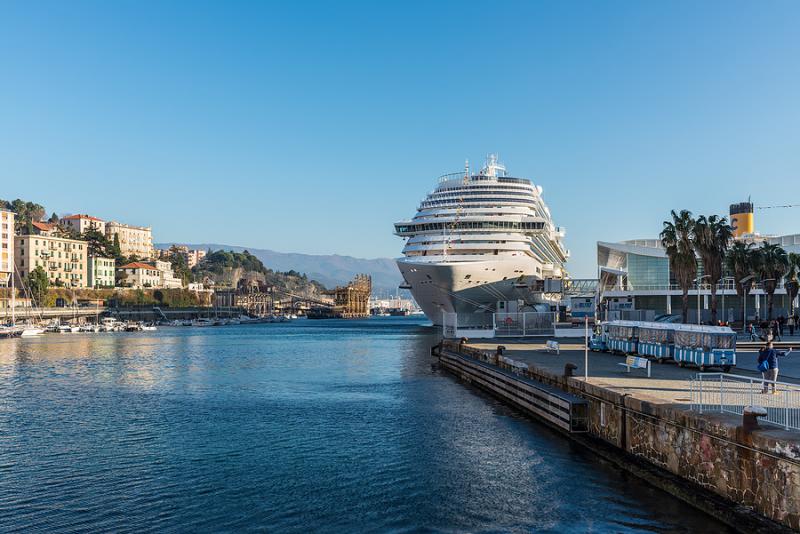On August 16, the MSC Grandiosa was the first cruise ship to set sail in Italy since the coronavirus shutdown.
It is a seven-night cruise departing from Genoa, stopping in the Italian ports of Civitavecchia, Naples, and Palermo, plus a 10-hour stop in Malta. Currently, only residents in Schengen countries can sail on the cruises.
Another cruise ship of the MSC group (Mediterranean Shipping Company), the Magnifica, will resume cruising on August 29 from Bari in southern Italy for a seven-night trip in the Eastern Mediterranean to Corfu, Olympia, and Athens in Greece.
The MSC Grandiosa normally accommodates up to 6,300 passengers and the MSC Magnifica up to 3,200 passengers. They have now cut passenger capacity by 30% to ensure safety protocols and a series of health protocols will be in place, according to the company. Its new procedures include COVID-19 testing for all passengers and crew prior to boarding, as well as daily; passengers can only go ashore on MSC’s organized excursions in ports. They won’t be allowed to visit cities on their own and go back on the ship.
On its website, MSC Cruises says passengers can “cruise with confidence.”
Currently, MSC has announced scheduled sailings through the end of October for these two cruise ships; all their other cruises in Europe, as well as Asia and North America, are canceled until the end of October 2020.
The other major cruise company operating from Italy, Costa Cruises, will restart operations on September 6 with the Costa Deliziosa, which will offer week-long cruises from Trieste to the Greek islands. On September 19, it will be the turn of Costa Diadema, with a seven-day trip from Genoa to Malta including stops in Italy. Cruises will be just for Italian nationals, according to cruisecritic.com.
Italy's government gave permission for cruise lines to resume operations in the country from 15 August. This further easing of travel restrictions is meant to help the tourism industry which has been hard hit by the coronavirus crisis. Italy’s economy, with tourism amounting to 13 percent of the country's GDP, has been badly damaged overall.








